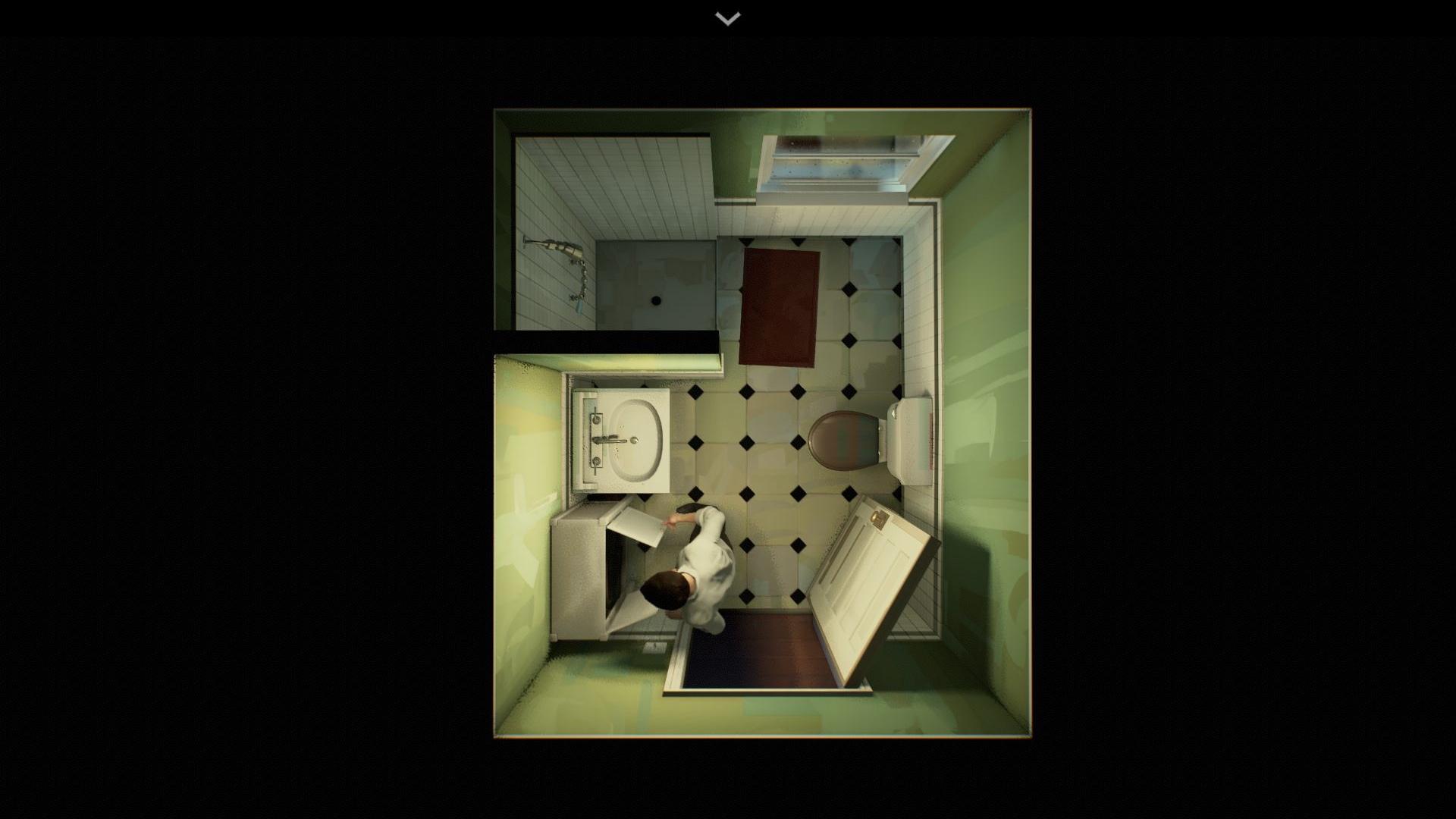GamesRadar+ Verdict
A miniature time loop thriller that will burrow into your frontal lobe and stay there long after you've solved the mystery.
Pros
- +
A compelling mystery to solve
- +
Risk-free experimenting, so go crazy
- +
An escape room with a twist
Cons
- -
Inscrutable final task
Why you can trust GamesRadar+
12 minutes can often feel like a long time. In the dentist's chair, waiting for a late-night train, for your burrito to be ready. In Twelve Minutes it flies by. Your character is a seemingly average Joe who ends up in a time loop. You get home from work, greet your wife, sit down to dessert, before a nameless cop bursts into your small apartment, accusing your wife of killing her father and seeking vengeance. As Joe, you'll live through this same loop over and over, with only conversations and a few items in the three rooms of your apartment to try and break the loop. The loop only exists for you, so you're on your own unless you can convince your wife of your new time travel abilities, and even then, she'll forget it the next time you restart.

Release date: August 19, 2021
Platform(s): Xbox One, Xbox Series X and PC
Developer: Luis Antonio
Publisher: Annapurna Interactive
Your apartment isn't cluttered, so you don't have much to work with at first. Your wife's phone, a kitchen knife, a wrapped gift, some sleeping pills in a cabinet. You're on a time limit too, and your wife insists her father died of a heart attack. From there it's one big mystery onion you need to peel one layer at a time, gathering information where you can that opens up new conversation opportunities for the various characters, piecing together what led to this moment. As you learn the routines with each try, they become a tool too. You'll know how the cop will react to certain scenarios, what your wife will think if she sees you adding sleeping pills to a mug of water before handing it to her - she won't be pleased - and what happens if you wake up and choose violence.
Twelve Minutes is actually a digital escape room, only you're trapped in a specific chunk of time, rather than a dingy basement in a town center with your line manager Keith, who is nearly in tears trying to figure out the combination to a locked box in the corner. You can leave the apartment through the front door, but that will just restart the time loop. Handy if you realize you've messed up a crucial step and it narrows your focus to a few key items in the apartment. As you progress the game allows you the slight gift in a couple of scenarios of skipping forward to the cop's arrival and will grey out exhausted conversational options. It's a subtle way of stopping you from wasting your time retreading old ground for no reason.
Kept in the loop

To enjoy Twelve Minutes is allowing yourself to be OK with failure, learning what you can from each mistake - perhaps a new snippet of information you can use to question someone, perhaps a consequence you don't want to repeat - and trying again. This permission to fail also frees gaming do-gooders like me from exploring some of the darker options. What happens if you use the kitchen knife on the cop when he can't defend himself? You might not feel good about the results, but you can skip away guilt-free, knowing that he'll be back in three minutes or so to terrorize you all over again.
The Hollywood cast is a nice touch too. Defoe stands out - when doesn't he - and McAvoy and Ridley play their parts well. It's just a shame that both are doing American accents that seem unnecessary and like an odd choice when choosing a voice actor. The sprinkle of stardust definitely helps though, especially as you're going to be hearing a lot of the same lines over and over as you try to get to the truth. I soon forgot about the American twang as the story pulled me in, crumb by delicious crumb, and the final conclusion caught me off guard, much to my shame. I'm constantly devouring mystery novels and movie thrillers and spotting twists a mile off, but I was so caught up with the small details of Twelve Minutes that I didn't spot this one until it the game was holding a big neon arrow sign over it.
Unhappy ending

This satisfying web of secrets, lies, and logic falls apart in the very final task you have to do to finish the game. Until that point, I'd felt happy with the balance of trial and error, understood what the game needed me to do, what the point I was trying to reach was. The final act I needed to end the game didn't feel that way, it was a nice touch narratively but didn't feel like it followed the rules of the world I'd spent so much time in. Perhaps the problem is with my frontal lobe, rather than Twelve Minutes, but I'd bet a hefty amount of money on that final moment sending a large, confused cohort of people to the internet to search for an answer.
That final betrayal won't put me off recommending this audacious little indie to anyone I know and trying to protect them from spoilers with my meager life. It's smart, trusts the player to be just as smart, and delivers a satisfying story with an impressively small canvas of a basic apartment and the inner lives of a small cast of characters.
Reviewed on PC with a code provided by the publisher.

Rachel Weber is the former US Managing Editor of GamesRadar+ and lives in Brooklyn, New York. She joined GamesRadar+ in 2017, revitalizing the news coverage and building new processes and strategies for the US team.



